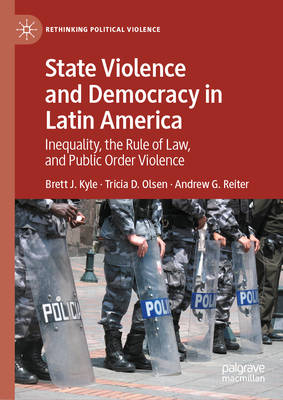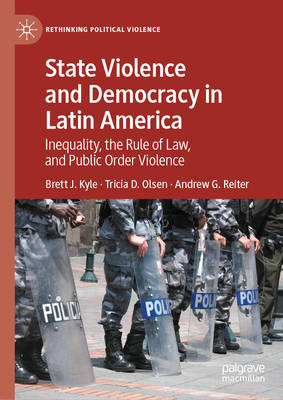
- Afhalen na 1 uur in een winkel met voorraad
- Gratis thuislevering in België vanaf € 30
- Ruim aanbod met 7 miljoen producten
- Afhalen na 1 uur in een winkel met voorraad
- Gratis thuislevering in België vanaf € 30
- Ruim aanbod met 7 miljoen producten
Zoeken
State Violence and Democracy in Latin America
Inequality, the Rule of Law, and Public Order Violence
Brett J Kyle, Tricia D Olsen, Andrew G Reiter
€ 117,95
+ 235 punten
Omschrijving
This book explores why state violence has proliferated across Latin America despite the adoption of extensive political and legal reforms intended to deter such violence. The authors argue that legacy conditions (uneven state capacity, weak rule of law, and socioeconomic inequalities) are met with what they term "public order violence," which results in weakened democratic institutions and a cycle of violence that is difficult to escape. Combining in-depth case studies with new cross-national data, the book provides a comprehensive analysis of the history, evolution, and contemporary architecture of state violence in the region. Individual chapters explain how public order violence permeates everyday policing, border security, and economic growth. The conclusion outlines the legal foundations of state violence and pathways toward a more peaceful future. This book is essential reading for scholars of Latin American politics, political violence, transitional justice, civil-military relations, democratization, international relations and security studies.
Specificaties
Betrokkenen
- Auteur(s):
- Uitgeverij:
Inhoud
- Aantal bladzijden:
- 229
- Taal:
- Engels
- Reeks:
Eigenschappen
- Productcode (EAN):
- 9783032064110
- Verschijningsdatum:
- 3/01/2026
- Uitvoering:
- Hardcover
- Formaat:
- Genaaid
- Afmetingen:
- 148 mm x 210 mm
- Gewicht:
- 410 g

Alleen bij Standaard Boekhandel
+ 235 punten op je klantenkaart van Standaard Boekhandel
Beoordelingen
We publiceren alleen reviews die voldoen aan de voorwaarden voor reviews. Bekijk onze voorwaarden voor reviews.







